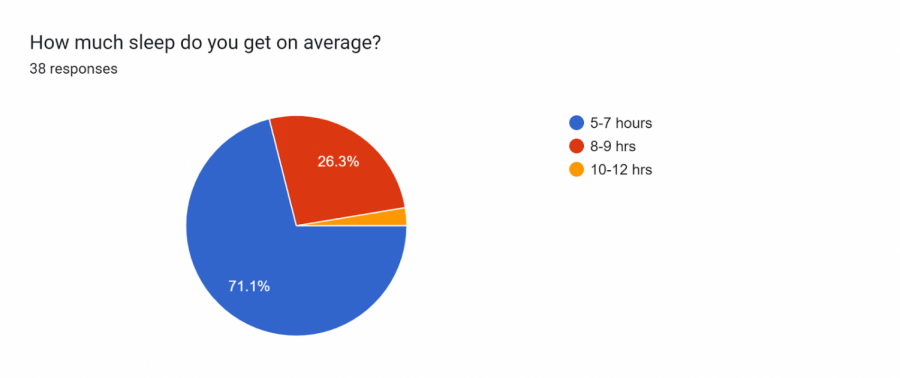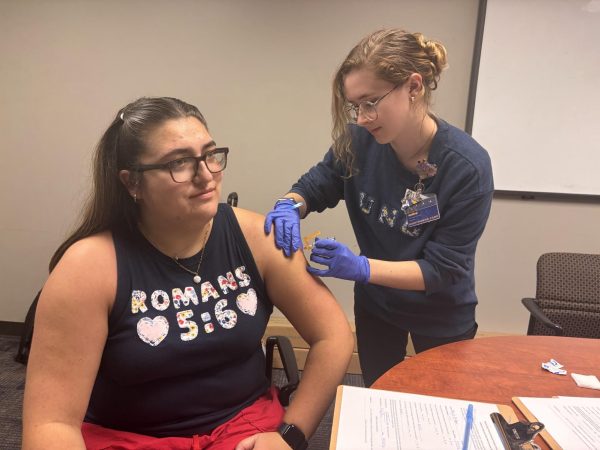Do You Need Sleep to be Successful?
The graph shows 71.1% of students get 5-7 hrs of sleep on average.
From academics to social activities, hobbies and relationships, sleep is a key factor in how well students function.
Solange Pipon, University of North Georgia 2021 graduate who majored in psychology, says sleep is super critical to academic success and physical endurance.
For Pipon, going to the gym is essential, she says, “Feeling good and having high self-esteem from exercise makes me a more productive person, which has made me a better student. All of this boils down to sleep, and I can tell if I’ve gotten enough sleep based on my performance that day at the gym.”
Pipon says, “Sleep is needed for muscle growth which is important for me because I enjoy lifting weights. Growth hormones and amino acids are released during sleep which is essential for muscle growth. For me, going to the gym is what makes me feel good. Feeling good and having high self-esteem from exercise makes me a more productive person, which has made me a better student. All of this boils down to sleep, and I can tell if I’ve gotten enough sleep based on my performance that day at the gym.”
UNG criminal justice major sophomore, Tatum Vullo says, “I could go to bed earlier and not stay up so late doing homework and prioritize me and my sleep rather than spend time with family when I get home from work.”
Dr. Lisa Miller, a pediatrician in Covington, Georgia, stresses the importance of sleep for success in students’ lives. She says, “Insufficient sleep leads to daytime sleepiness. It can contribute to poor cognition and accidents while driving and in the workplace. For students, insufficient sleep leads to them having difficulty with concentration, attention, motivation, fatigue, lack of energy, restlessness, and poor cognition.”
Miller says, “Sleep hygiene can include scheduling sleep, normal bedtime routine, wind down with quiet activities, exercising daily and having an environment that is conducive to good sleep.” She added, “Avoiding cigarettes and caffeine and heavy meals in the evening can help with sleep. While alcohol reduces the time it takes to fall asleep it actually can cause more waking time and light sleep and reduces the quality of sleep.”
Emma Hechavarria, a sophomore psychology UNG major says, “I feel so much more together when I am in a routine. But, honorable mention it’s important to have breaks from routine to also remain mentally healthy.”
Your donation will support the student journalists of University of North Georgia. Your contribution will allow us to purchase equipment and cover our annual website hosting costs.





























